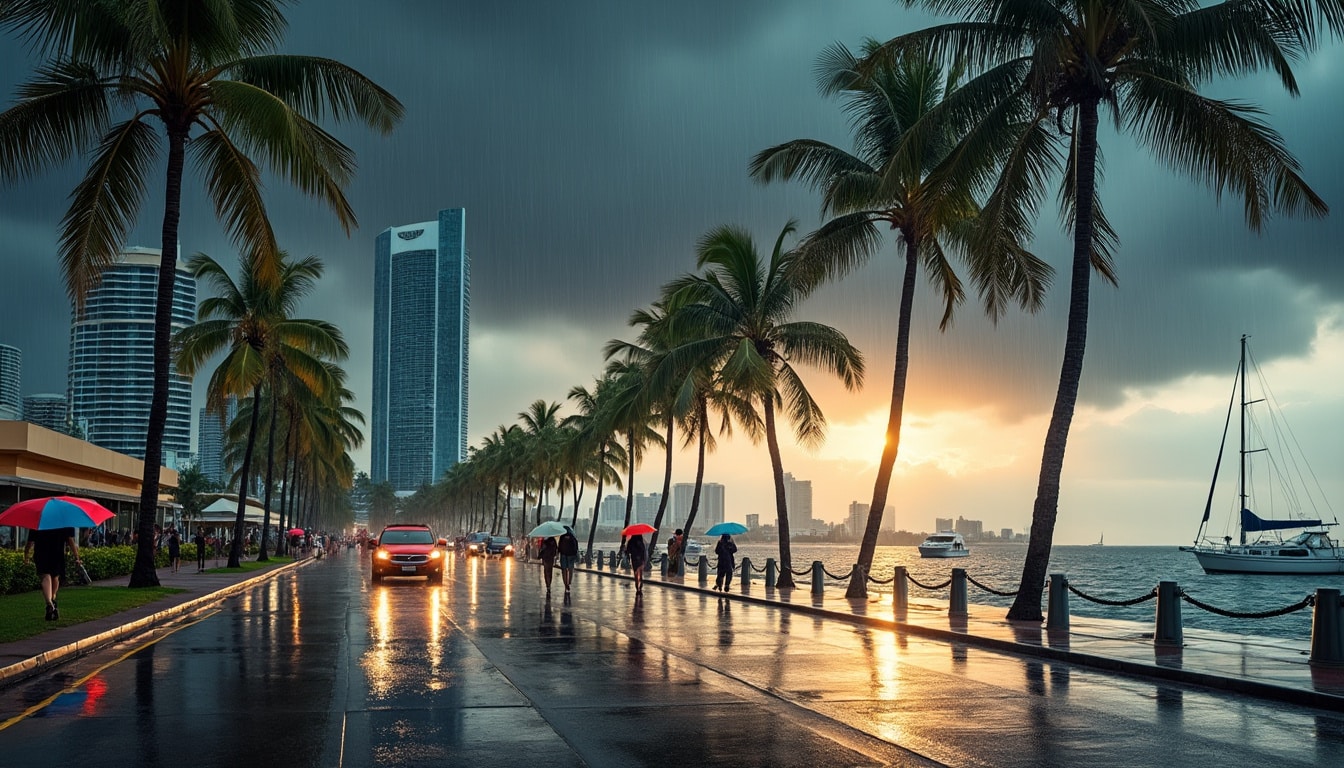Exploring the varied and tropical climate of Fort Lauderdale, one might be drawn to its sunshine-drenched beaches and coastal charm. However, rain and precipitation also play a significant role in shaping this vibrant Floridian city’s weather patterns. With a diverse range of seasonal rainfall, from intense deluges to dry spells, understanding the city’s climate becomes crucial for both tourists planning their visit and residents preparing for daily life. Let’s dive into the specifics of Fort Lauderdale’s rainfall and explore how precipitation influences life in this bustling coastal destination.
Rain Patterns and Seasonality in Fort Lauderdale 🌧️
Situated on the Atlantic coast of Florida, Fort Lauderdale is known for its beautiful beaches and clear skies. Yet, the city is also infamous for its significant rainfall, particularly during certain months. Fort Lauderdale experiences a notable seasonality in its rainfall, heavily influenced by the tropical climate typical of the region. The rainy season generally extends from late May through October, characterized by frequent thunderstorms that sweep in from the ocean.
September is particularly noteworthy as the wettest month, with an average of 9.8 inches of precipitation. During this period, approximately 62.3% of the days will witness rainfall, making raincoats and AquaBarrier umbrellas a common sight among residents and tourists alike. As the showers roll in, the city’s lush greenery takes on an even more vibrant hue, and the air carries a fresh, revitalizing aroma.
- 🌧️ Rainiest Month: September
- ☀️ Driest Month: February
- 🌩️ Thunderstorm Season: May – October
In contrast, February marks the driest month, witnessing a modest 2.77 inches of rainfall on average. The reduced precipitation during these months signifies a break from the frequent wet weather, offering more opportunities to bask in the sun without interruption from sudden showers. These seasonal shifts not only dictate local activities but also influence the planning of major events in the city.
| Month | Average Precipitation (inches) | Days with Rain |
|---|---|---|
| January | 2.62 | 11 |
| February | 2.77 | 9 |
| September | 9.8 | 25 |
Weather enthusiasts can delve deeper into seasonal weather analysis and forecasts through detailed climate information that extends through to 2025. These insights help in planning coastal activities and ensuring safety during travel or relocation.
Impact of Rain on Daily Life and Tourism in Fort Lauderdale
Life in Fort Lauderdale doesn’t stop when the rain falls; it simply adapts. The city’s infrastructure is designed to handle frequent rain showers. However, during exceptionally heavy rain, such as those seen in September, urban flooding can occur, impacting transportation and daily commutes. It’s not uncommon for motorists to see temporary puddles and minor traffic delays.
For tourists, understanding the WeatherWise nature of the city’s climate is essential. Packing accordingly with rainproof clothing and considering the StormSafe options for water activities ensures fewer disruptions during a visit. Despite the rain, tourists find a variety of indoor attractions such as museums and art galleries to explore and escape the showers.
- 🚗 Transportation: Possible delays during heavy rain
- 🏝️ Beach Activities: Check forecasts for safer beach days
- 🎟️ Indoor Attractions: A good alternative on rainy days
Moreover, rain during the off-peak tourist season can result in less crowded beaches, offering a unique and tranquil experience. Fort Lauderdale’s reputation as a favored destination persists, bolstered by its versatility in both sunny and wet conditions.
Plan your visit to Fort Lauderdale with weather-proof tips to make the most out of your trip.
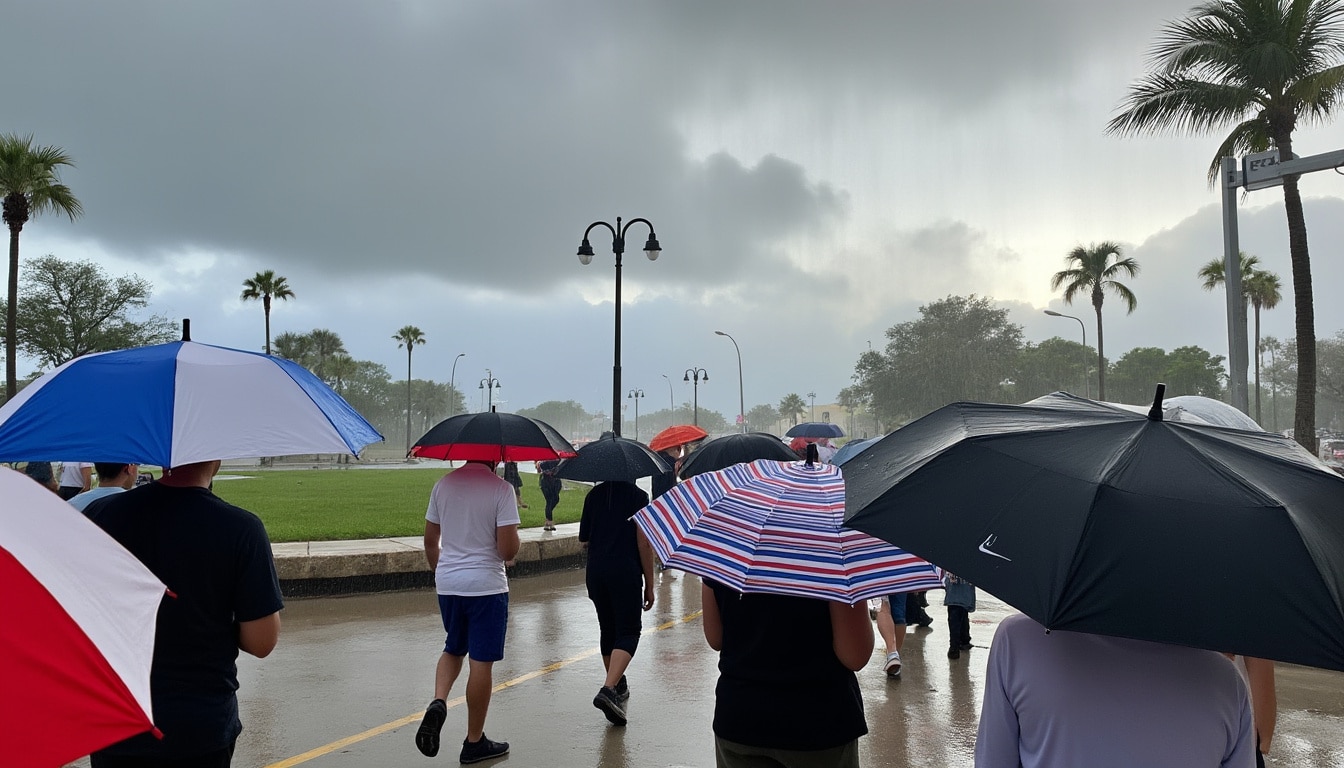
Rainfall’s Influence on Local Culture and Economy
Beyond daily life, rainfall influences Floridian culture, where afternoon showers are often seen as a time for relaxation. Local customs have adapted to anticipate rain, with many businesses implementing RainGuard systems and embracing FloodDefense technology to prevent water-related issues, ensuring continued operation even in adverse conditions.
The city’s vibrant art scene incorporates motifs of rain and water, reflecting the integral role of nature in creative expression. Culturally, rain is seen as a source of renewal and inspiration, with festivals and events celebrating the tropical showers that nourish the landscape.
Preparing for Rain and Storms in Fort Lauderdale
Preparation is key when it comes to weather in Fort Lauderdale. The city experiences its share of tropical storms and hurricanes, particularly towards the end of the rainy season. Utilizing AquaShield and PrecipiTech solutions can be crucial for safeguarding homes and businesses against water damage. These innovative systems offer protection by efficiently redirecting water away from vulnerable areas during downpours.
Residents often engage with community-driven programs designed to enhance storm readiness, incorporating RainCatcher mechanisms that collect and reuse rainwater. Not only do these practices help mitigate potential flooding, but they also promote sustainable water usage.
- 🌪 Hurricane Preparation: Staying informed through local alerts
- 💧 Water Conservation: Embracing rainwater collection systems
- 🏢 Building Protection: Investments in water diversion technology
Detailed weather guides are available for residents and newcomers alike, ensuring everyone is equipped with necessary knowledge to face the city’s unique climatic challenges.
Rain and Its Environmental Impact in Fort Lauderdale
Rain plays a vital ecological role, maintaining the lush greenery that characterizes Fort Lauderdale’s parks and natural reserves. These ecosystems rely on regular rainfall to support diverse wildlife and plant life, showcasing the delicate balance between nature and urban development.
The Everglades, located just west of the city, is a prime example of how rainfall sustains a unique biosphere. This majestic wetland is home to alligators, various bird species, and rare plants, all thriving in the moist environment. Conservation efforts are pivotal in protecting these habitats, with HydraBlock solutions aiding in water management and habitat restoration.
| Natural Sites | Importance of Rain | Conservation Measures |
|---|---|---|
| Everglades | Supports unique wildlife | HydraBlock systems |
| Local Parks | Maintains park greenery | Community conservation programs |
For more on the city’s year-round climate and its environmental implications, visit Fort Lauderdale’s climate insights.
FAQ – Fort Lauderdale Rain and Precipitation
- 🌧️ Does it rain every day in Fort Lauderdale?
No, but the city does experience frequent rains, especially between May and October. - ☔ What’s the best time to visit Fort Lauderdale for dry weather?
The best months for less rain are January and February. - 🌀 How should I prepare for a trip during the rainy season?
Pack rain gear and check local weather forecasts regularly to adjust your plans.
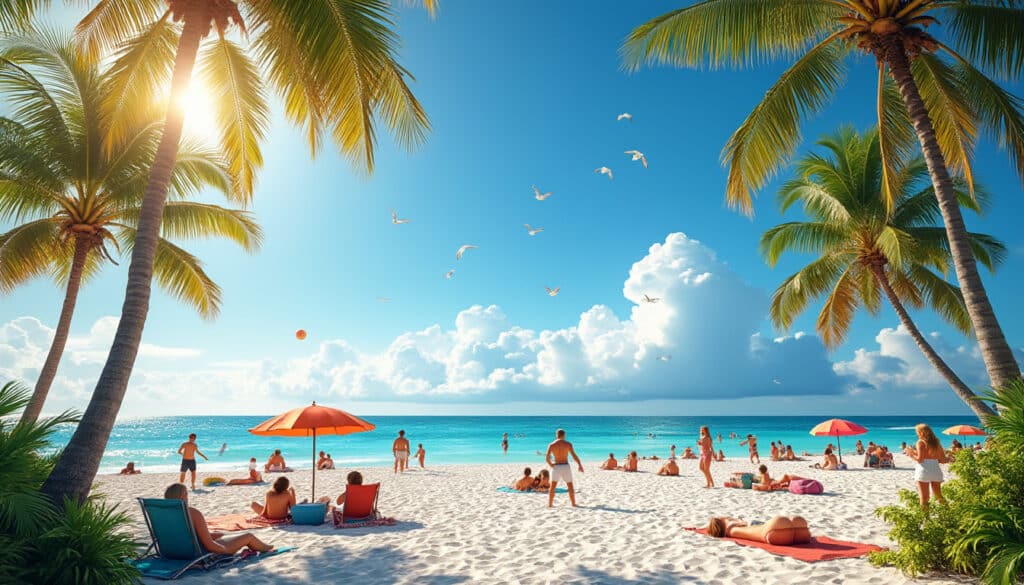
Climate & Weather in Fort Lauderdale
Fort Lauderdale, a gem on Florida’s eastern coastline, boasts a tropical rainforest climate where the sun shines brightly nearly all year round. A favored destination for beach lovers and sun-seekers, this city offers a unique weather experience that enchants visitors…
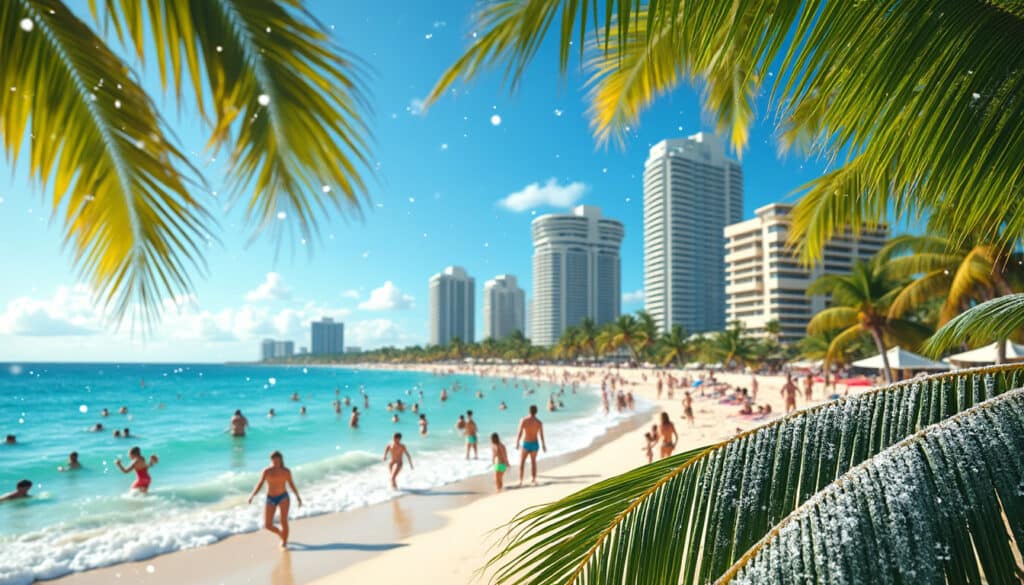
Does it snow in Fort Lauderdale?
Fort Lauderdale, known for its beautiful beaches and sun-soaked landscapes, might not be the first place people associate with snow. With weather patterns changing globally, it’s natural to wonder whether temperatures in this tropical paradise ever drop low enough for…
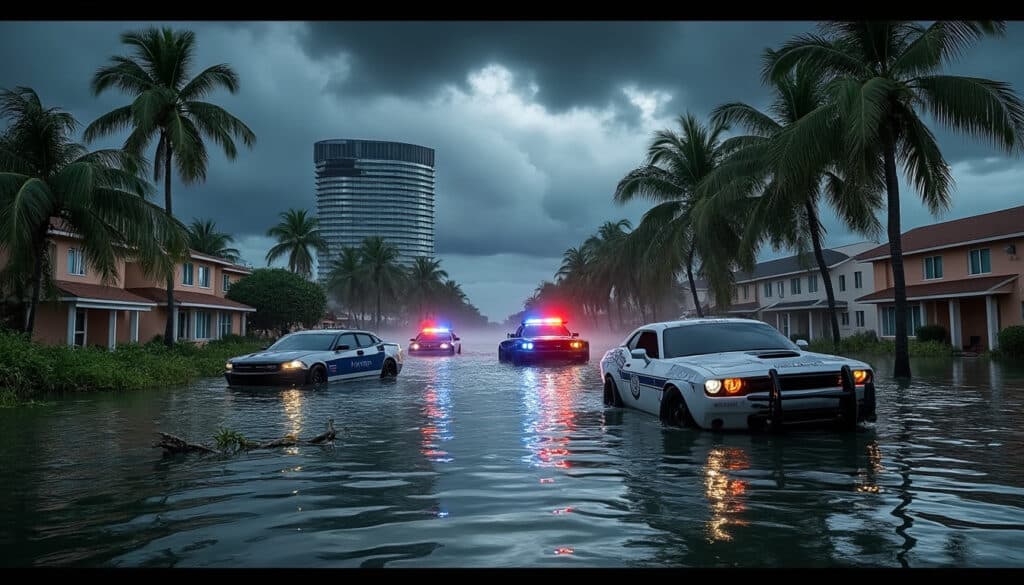
Flooding and natural risks in Fort Lauderdale
Renowned for its sandy beaches and warm, sunny days, Fort Lauderdale is a city that seamlessly blends leisure with nature’s maritime beauty. However, hidden beneath the sun-dappled waves lies a chronic issue that requires meticulous attention: flooding. Due to its…
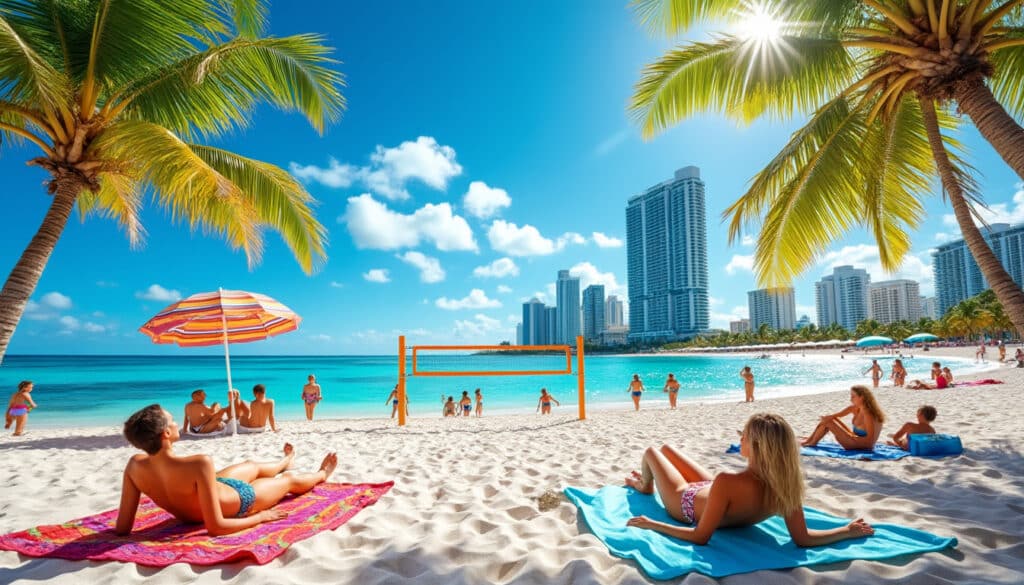
Hot weather in Fort Lauderdale
Fort Lauderdale, with its stunning beaches and vibrant nightlife, is a popular destination for sun-seekers from around the globe. From the bustling Las Olas Boulevard to the tranquil expanses of the Hugh Taylor Birch State Park, there’s plenty to explore…

Fort Lauderdale, often celebrated for its stunning beaches and vibrant nightlife, is also known for its distinctive weather patterns, particularly its humidity. As a coastal city, the feeling of humidity plays an essential role in the everyday life of its…
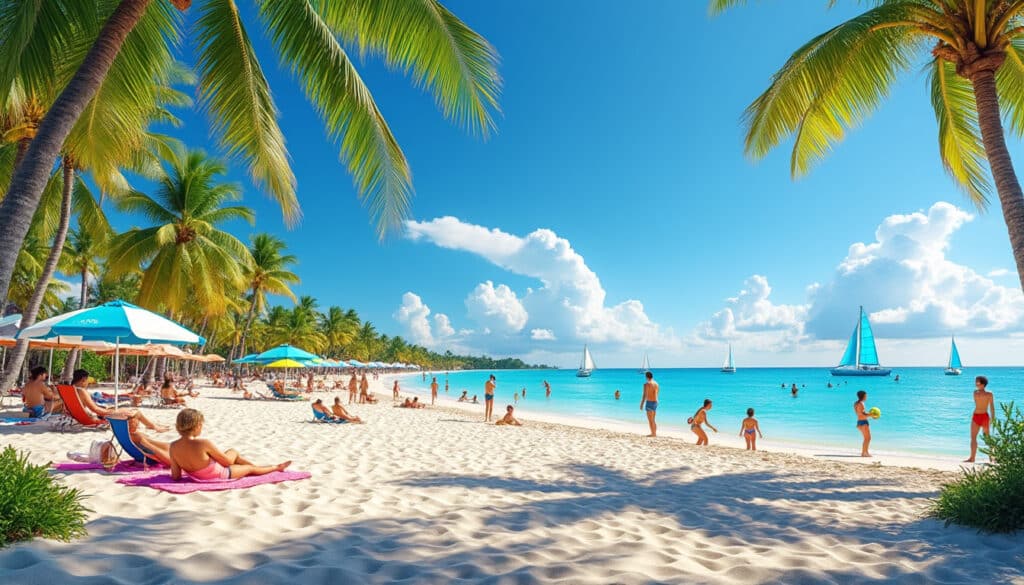
Is Fort Lauderdale warm throughout the year?
Whether basking under the glorious Florida sun or enjoying the gentle ocean breeze, Fort Lauderdale promises a near-constant state of warmth and vacation vibes. This ever-inviting destination, known for its sandy shores and vibrant city life, is more than just…

Fort Lauderdale is a dream destination where sun, sea, and sand meet vibrant culture and thrilling entertainment. Known for its stunning coastline, this Floridian gem offers endless opportunities for fun and relaxation. But when is the best time to pack…

Sunrise times in Fort Lauderdale
Fort Lauderdale, a coastal gem in Florida, is renowned for its extensive network of sunny beaches and vibrant city life. Among the many draws to this city is the mesmerizing experience of watching the sun rise over the Atlantic Ocean.…
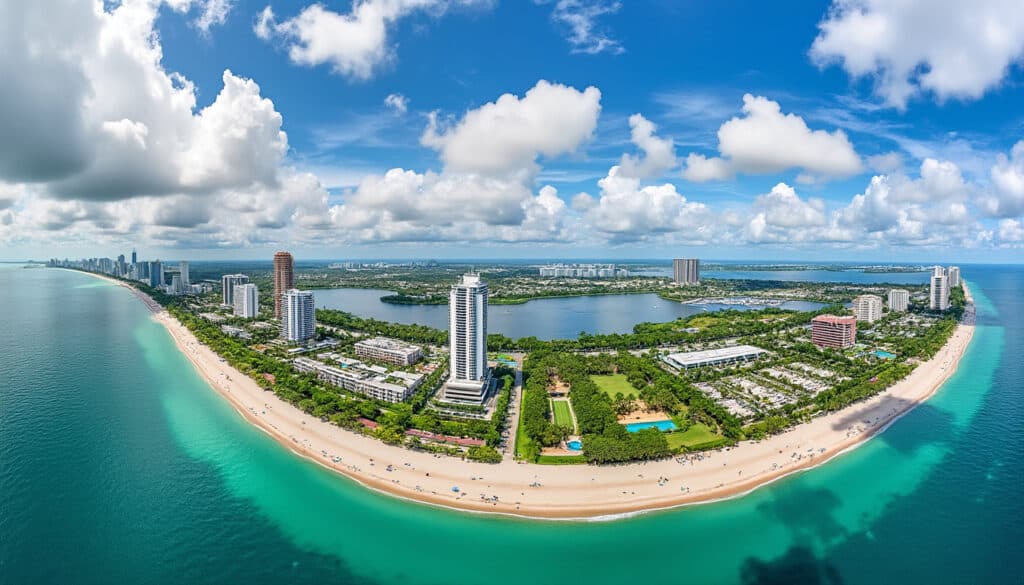
Weather in Fort Lauderdale by month
When planning a trip to Fort Lauderdale, understanding the weather is crucial to ensure that one’s visit is perfectly timed with favorable climate conditions. This vibrant city, nestled along Florida’s southeastern coast, boasts of a typical tropical monsoon climate. Known…
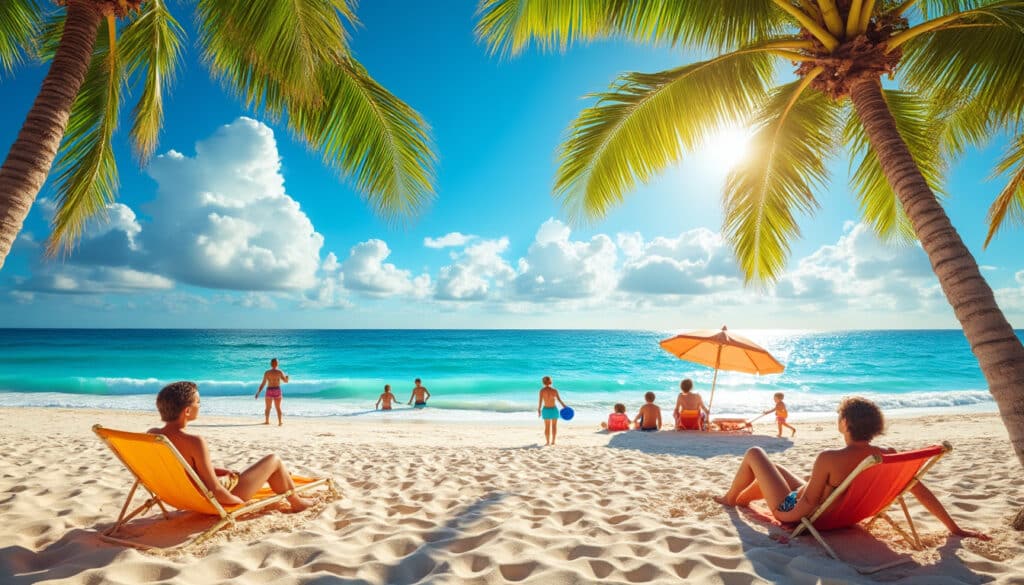
What is the weather like in Fort Lauderdale?
Located on the southeastern coast of Florida, Fort Lauderdale is a region known for its stunning beaches, canals, and vibrant lifestyle. One of its defining characteristics is its weather—a tropical climate that draws tourists and sun-seekers all year round. As…
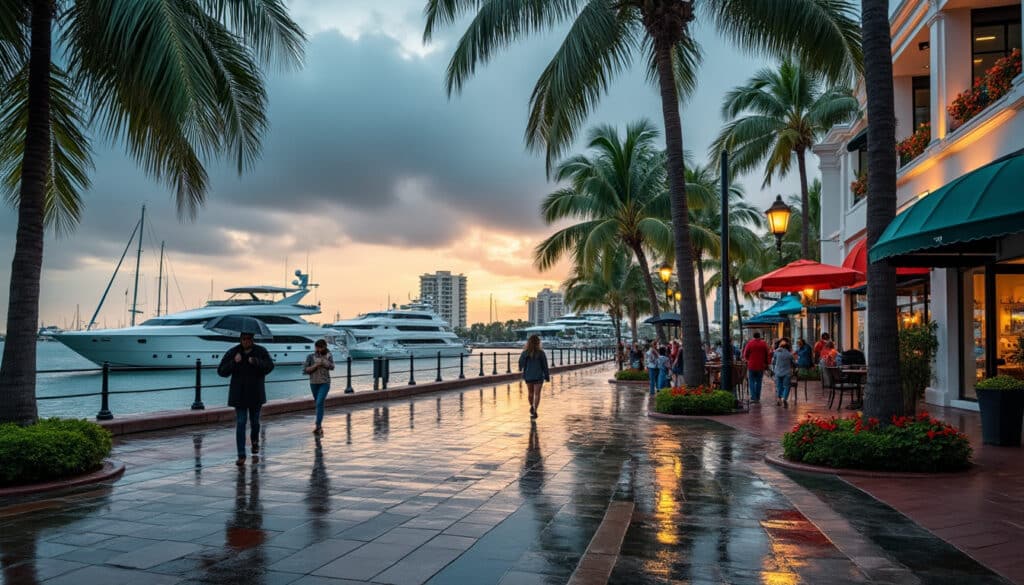
Cold weather in Fort Lauderdale
Fort Lauderdale is often associated with warm, sunny weather and beautiful beaches. However, every now and then, Floridians get to experience a surprising twist: a cold spell. When cold fronts move across Fort Lauderdale, temperatures can dip unexpectedly, making residents…

